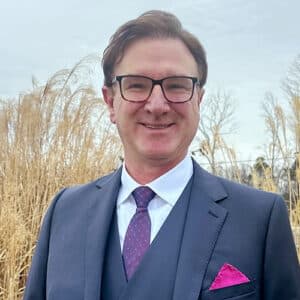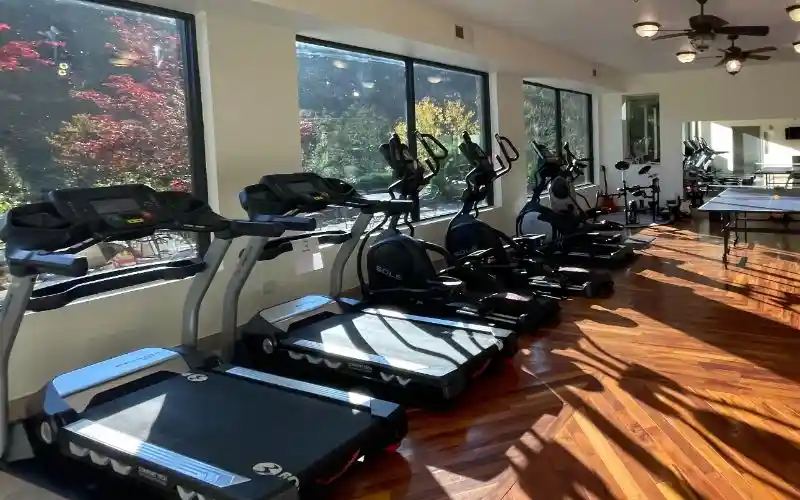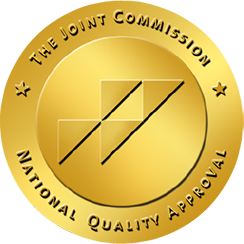Sevierville, Tennessee, United States
Pasadena Villa - Smoky Mountain Lodge
Verified
Verified
This provider’s information has been quality-checked by Recovery.com’s Research Team for accuracy and completeness, including center verification through appropriate third-party organizations.
Joint Commission Accredited
The Joint Commission accreditation is a voluntary, objective process that evaluates and accredits healthcare organizations (like treatment centers) based on performance standards designed to improve quality and safety for patients. To be accredited means the treatment center has been found to meet the Commission's standards for quality and safety in patient care.
Provider's Policy
Pasadena Villa accepts a variety of in-network insurance plans, provides private pay options, and partners with select insurance companies on an out-of-network basis to help reduce treatment costs and maximize benefits.
Estimated Cash Pay Rate
The cost listed here ($30,000+/month) is an estimate of the cash pay price. Center pricing can vary based on program and length of stay. Contact the center for more information. Recovery.com strives for price transparency so you can make an informed decision.
About Pasadena Villa - Smoky Mountain Lodge
Pasadena Villa Smoky Mountain Lodge is a psychiatric treatment center in the beautiful Smoky Mountains of East Tennessee. Their compassionate, dedicated staff fosters a healing environment to treat mental health disorders and co-occurring conditions. Pasadena Villa uses a unique Social Integration Model to blend learning and practicing life and social skills. By providing treatment for the full spectrum of mental health disorders, they strive to ensure that clients are well-prepared for life after treatment.
Primary Mental Health Treatment
Pasadena Villa offers residential treatment, day treatment (PHP), and intensive outpatient care (IOP) for anxiety disorders, bipolar disorder, depression, mood disorders, psychosis, schizophrenia, psychotic disorders, thought disorders, and trauma. They uniquely specialize in providing care for autism spectrum disorder (ASD). Clients with co-occurring addiction and mental health issues can also heal at Pasadena Villa. Their staff of psychiatrists, psychologists, therapists, nurses, and recreational therapists cater treatment to specific needs and diagnoses.
Evidence-Based and Personalized
Treatment at Pasadena Villa begins with a comprehensive psychiatric evaluation to create well-rounded care plans to meet client preferences. Their evidence-based therapies include cognitive behavioral therapy (CBT), dialectical behavioral therapy (DBT), acceptance and commitment therapy (ACT), and more. Their family program provides in-person or virtual sessions with education, coaching, advocacy, and talk therapy. Pasadena Villa offers the Seeking Safety program to treat co-occurring disorders through a safe healing environment and a focus on resilience in recovery. Their animal-assisted therapy with horses and support animals provides a unique experiential learning opportunity to help clients improve trust, communication, confidence, and boundaries.
Comprehensive Treatment Options
Pasadena Villa offers intensive residential treatment, day treatment, and intensive outpatient with a housing option. Their mountain home offers sweeping views, on-site horse stables, a gym, and outdoor walking trails. Pasadena Villa’s Beyond Trauma program creates personalized trauma recovery for women. For loved ones, they provide family education and frequent treatment updates. After treatment, clients join Pasadena Villa’s alumni program and meet weekly in support groups.
Read More

Insurance Accepted
Provider's Policy:Pasadena Villa accepts a variety of in-network insurance plans, provides private pay options, and partners with select insurance companies on an out-of-network basis to help reduce treatment costs and maximize benefits.
Social Integration Model
The Social Integration Model is at the heart of Pasadena Villa’s program. Using this model, therapists enact real-time therapeutic interventions while clients experience real-life situations. The Social integration Model is a tool focused on reinforcing social and life skills, where treatment concepts are not only reviewed but experienced in the moment. Pasadena Villa also provides professional guidance to help clients implement their newly learned skills.
Healing Environment
Pasadena Villa’s lodge sits outside Great Smoky Mountain National Park, offering clients ample opportunities to enjoy the great outdoors, escape the hustle and bustle of daily life, and focus on self-care. The lodge offers many recreational therapy options, including hiking. Residents also have weekly access to The Stables, Pasadena Villa’s tranquil location offering equine therapy and other animal-assisted therapies.
Evidence-Based Treatment
Pasadena Villa’s program is firmly rooted in evidence-based treatment methods, with individualized treatment plans created for each client based on their specific needs. In tandem with their Social Integration Model, their clinical team uses multiple therapeutic modalities, including cognitive behavioral therapy (CBT), dialectical behavioral therapy (DBT), and acceptance and commitment therapy (ACT). Clients engage in the Seeking Safety program to build resilience and self-efficacy in recovery.
Autism Treatment
Pasadena Villa offers a separate residential program for clients with autism spectrum disorder (ASD), The Stables Autism Program. This program incorporates the Social Integration Model and animal-assisted therapy, with horses, goats, and other farm animals living on-site. It aims to build communication skills, confidence, and well-being.

Center Overview
Estimated Cash Pay Rate
LGBTQ+
Addiction and mental illnesses in the LGBTQ+ community must be treated with an affirming, safe, and relevant approach, which many centers provide.
Mild Disabilities
Adults with mild physical or intellectual disabilities receive treatment catered to their specific needs in a safe and clinically supportive environment.

Treatment Focus
This center specializes in primary mental health treatment and offers programs for co-occurring substance use. You receive collaborative, individualized treatment for whole-person healing.

Care Options






Treatment
Specializations
Schizophrenia
Schizophrenia is a serious mental health condition that causes hallucinations, delusions, and disordered thinking.
Anxiety
Anxiety is a common mental health condition that can include excessive worry, panic attacks, physical tension, and increased blood pressure.
Bipolar
This mental health condition is characterized by extreme mood swings between depression, mania, and remission.
Depression
Symptoms of depression may include fatigue, a sense of numbness, and loss of interest in activities. This condition can range from mild to severe.
Trauma
Some traumatic events are so disturbing that they cause long-term mental health problems. Those ongoing issues can also be referred to as "trauma."
Approaches
Evidence-Based
A combination of scientifically rooted therapies and treatments make up evidence-based care, defined by their measured and proven results.
Family Involvement
Providers involve family in the treatment of their loved one through family therapy, visits, or both–because addiction is a family disease.
Individual Treatment
Individual care meets the needs of each patient, using personalized treatment to provide them the most relevant care and greatest chance of success.
Therapeutic Community
Therapeutic communities allow patients to contribute to the success and progress of their community, through healthy behaviors or even basic chores.
Therapies
1-on-1 Counseling
Patient and therapist meet 1-on-1 to work through difficult emotions and behavioral challenges in a personal, private setting.
Meditation & Mindfulness
A practiced state of mind that brings patients to the present. It allows them to become fully aware of themselves, their feelings, and the present moment.
Rational Emotive Behavior Therapy
A type of cognitive therapy that identifies negative self-defeating thoughts and behaviors, rewriting beliefs to be positive, empowering, and present.
Mindfulness Therapy
This ancient practice can be mental, emotional, and even spiritual. In meditation, you focus your attention on the present moment without judgement.
Adventure Therapy
This experiential approach uses the physical and emotional challenges of outdoor activities as tools for personal growth.
Attachment-Based Family Therapy
ABFT is a trauma-focused therapy that teaches you to form healthy relationships by rebuilding trust and healing attachment issues formed in childhood.
Animal Therapy
Animals can inspire trust and self-worth. In this experiential therapy, guided interactions are used to improve social skills and emotion regulation.
Art Therapy
Visual art invites patients to examine the emotions within their work, focusing on the process of creativity and its gentle therapeutic power.
Conditions We Treat
Schizophrenia
Schizophrenia is a serious mental health condition that causes hallucinations, delusions, and disordered thinking.
Grief and Loss
Grief is a natural reaction to loss, but severe grief can interfere with your ability to function. You can get treatment for this condition.
Personality Disorders
Personality disorders destabilize the way a person thinks, feels, and behaves. If untreated, they can undermine relationships and lead to severe distress.
ADHD, ADD
ADHD is a common mental health condition caused by dopamine imbalance. Common symptoms include inattention, hyperactivitiy, and impulsivity.
Anger
Although anger itself isn't a disorder, it can get out of hand. If this feeling interferes with your relationships and daily functioning, treatment can help.
Anxiety
Anxiety is a common mental health condition that can include excessive worry, panic attacks, physical tension, and increased blood pressure.
Bipolar
This mental health condition is characterized by extreme mood swings between depression, mania, and remission.
Burnout
Burnout entails mental and physical exhaustion, and leads to a severe lack of fulfillment. This condition is often caused by overwork.
Codependency
Codependency is a pattern of emotional dependence and controlling behavior. It's most common among people with addicted loved ones.
Depression
Symptoms of depression may include fatigue, a sense of numbness, and loss of interest in activities. This condition can range from mild to severe.
Substances We Treat
Co-Occurring Disorders
A person with multiple mental health diagnoses, such as addiction and depression, has co-occurring disorders also called dual diagnosis.
Drug Addiction
Drug addiction is the excessive and repetitive use of substances, despite harmful consequences to a person's life, health, and relationships.
Synthetic Drugs
Synthetic drugs are made in a lab, unlike plant-based drugs like mushrooms. Most synthetic drugs are either stimulants or synthetic cannabinoids.
Aftercare
Experience
Personal Amenities
Amenities
Special Considerations
Healthy Meals are provided
Great food meets great treatment, with providers serving healthy meals to restore nutrition, wellbeing, and health.
LGBTQ group
Group therapy unites LGBTQ+ patients in a safe and culturally competent setting, encouraging peer support under the expert leadership of a therapist.
Activities
Yoga
Yoga is both a physical and spiritual practice. It includes a flow of movement, breathing techniques, and meditation.
Off-Site Activities
Off-Site Amenities
Professional Staff

Brenda Keller
Clinical Director
LPC

Maddison Park
Director of Clinical Services
MSW, LMSW

Dr. John Kupfner
Medical Director
MD
We love hearing about your treatment experience
Help individuals and families seeking treatment by sharing your first-hand experience with this treatment provider. Review Guidelines.

































